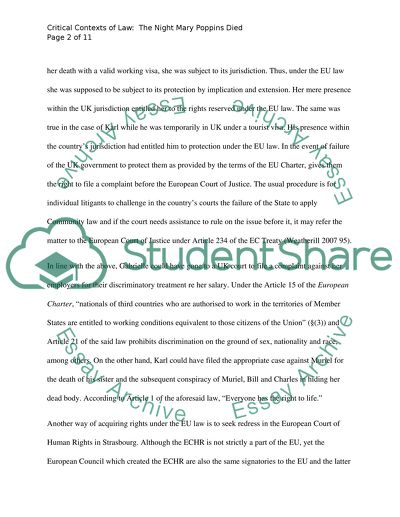Cite this document
(Critical Contexts of Law: The Night Mary Poppins Died Assignment, n.d.)
Critical Contexts of Law: The Night Mary Poppins Died Assignment. Retrieved from https://studentshare.org/law/1566476-critical-contexts
Critical Contexts of Law: The Night Mary Poppins Died Assignment. Retrieved from https://studentshare.org/law/1566476-critical-contexts
(Critical Contexts of Law: The Night Mary Poppins Died Assignment)
Critical Contexts of Law: The Night Mary Poppins Died Assignment. https://studentshare.org/law/1566476-critical-contexts.
Critical Contexts of Law: The Night Mary Poppins Died Assignment. https://studentshare.org/law/1566476-critical-contexts.
“Critical Contexts of Law: The Night Mary Poppins Died Assignment”. https://studentshare.org/law/1566476-critical-contexts.


